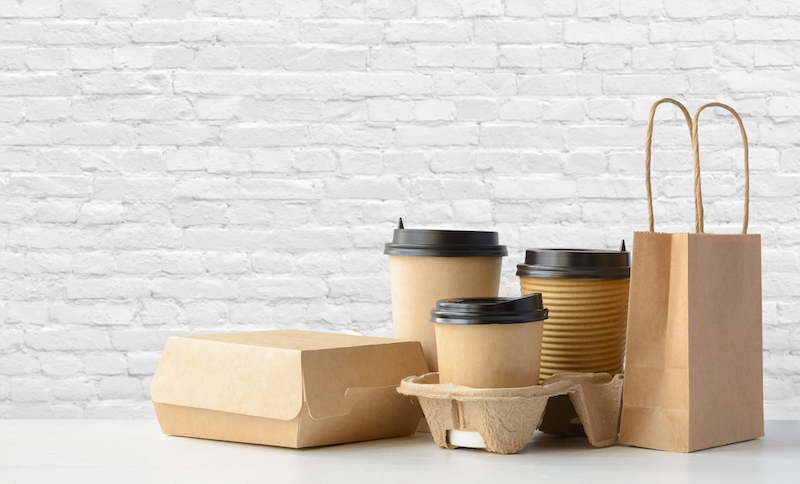
Features
Environment & Sustainability
Financial Reports & Markets
Packaging
Paper
Viewpoint: Demand for food delivery should spur new sustainable food packaging
Consumer demand for takeout during the COVID-19 pandemic does not need to conflict with environmental commitment in packaging solutions, says APP Canada's VP sustainability
April 20, 2020 By Ian Lifshitz
 Photo: Adobe Stock
Photo: Adobe Stock As Canadians isolate in response to the COVID-19 outbreak, there has been a definitive surge in the demand for food delivery.
Apps like Uber Eats and Foodora have seen a significant uptake in orders placed; they have now become a vital lifeline for struggling restaurants. Many food delivery apps have even changed their policies and waived delivery fees further encouraging people to stay home.
Furthermore, fast food restaurants, such as Burger King and Subway, have ramped up advertising campaigns to promote free delivery and encourage patrons to order their favourite meals right to their door, encouraging them to stay home during these unprecedented times.
This, however, represents a new and unique dilemma for brands that have built a reputation on their environmental commitment and sustainable practices in response to increasing consumer demand.
Just last year, a consumer trends report produced by Asia Pulp & Paper showed that 71 per cent of Canadians felt that sustainable food packaging was more important to them today than five years ago.
Although there is a demand for sustainable packaging among Canadian consumers, plastic is still produced in vast quantities.
The global production of plastic packaging equates to approximately 78 million metric tons, of that a mere 14 per cent is recycled, according to the Ellen MacArthur Foundation, which promotes the circular bioeconomy.
Plastic bags can take upwards of 10 to 12 years to decompose, plastic bottles can take upwards of 20 years to break down due to their more complex and thicker polymers. Additionally, Styrofoam commonly used for takeout takes 500 years to completely decompose.
Although over the past decade there has been a substantial shift towards sustainable packaging, COVID-19 has flipped this shift on its head. Due to the safety concerns of reusable bags, containers and mugs, plastic bags and packaging have reemerged as the safer alternative to reusable ones.
Due to social distancing measures consumers are relying more heavily on food delivery services, further adding to a high demand for food packaging products. Habits that took close to a decade or more to establish are vanishing in just days.
But restaurant and fast food brands don’t have to trade their environmental conscience for a new reality based on waste-producing takeout containers critical for business survival.
Food packaging plays multiple functions including preserving food quality, protection from contamination and provides customer convenience. It also forms an extension of a brand’s personality and reinforces its commitment to a healthier planet.
It is for this reason that the makers or sustainable, recyclable and fully compostable takeout container solutions are racing to connect with packaging companies. These companies have the opportunity to reach brands who can, in turn, communicate this information to their customers and preserve sales and loyalty.
For example, last year, Asia Pulp and Paper released the Bio Natura Foopak, a packaging product made from virgin natural fibre that does not contain harmful compounds or bacteria, and is environmentally friendly. The eco-friendly food packaging products are easily recyclable and require no additional treatment – they are industrial compostable within 12 weeks.
Innovative products like this are undoubtedly the future of the global food industry. Now more than an ever, as the demand for takeout surges, brands need not worry about sacrificing their sustainability initiatives in order to meet market demand. They can look to products that can be tailored to showcase their brand and deliver the top-tier food quality that customers know and crave.
As the surge for food delivery services continues, the packaging industry will continue to innovate to satisfy consumer demands for both environmental sustainability and unprecedented mass consumption.
Ian Lifshitz is vice-president of sustainability and stakeholder relations at Asia Pulp & Paper Canada.
Print this page
